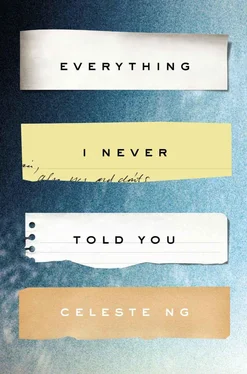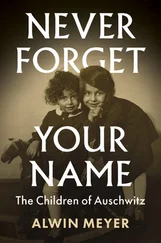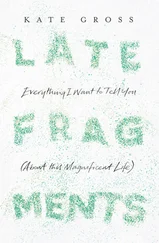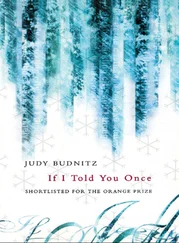A faint knocking punched through the music, and Lydia twisted the volume knob as loud as it would go. In a moment, Marilyn, knuckles smarting, opened the door and leaned in.
“Lydia. Lydia. ” When her daughter didn’t turn around, Marilyn lifted the arm of the record player and the room went quiet, the record spinning helplessly beneath her hand. “That’s better. How can you think with that on?”
“It doesn’t bother me.”
“Are you done with your homework already?” No answer. Marilyn pursed her lips. “You know, you shouldn’t be listening to music if you haven’t finished your schoolwork.”
Lydia picked at a hangnail. “I’ll do it after dinner.”
“Better to get started now, don’t you think? Make sure you have time to finish it all and do a careful job?” Marilyn’s face softened. “Sweetheart, I know high school may not feel important. But it’s the foundation of the rest of your life.” She perched on the arm of Lydia’s chair and stroked her daughter’s hair. It was so crucial to make her understand, but she didn’t know how. A quiver had crept into Marilyn’s voice, but Lydia didn’t notice. “Trust me. Please. Don’t let your life slip away from you.”
Oh god, Lydia thought, not again. She blinked fiercely and focused on the corner of her desk, where some article her mother had clipped months ago still sat, furred now with dust.
“Look at me.” Marilyn cupped Lydia’s chin in her hand and thought of all the things her own mother had never said to her, the things she had longed, her entire life, to hear. “You have your whole life in front of you. You can do anything you want.” She paused, looking over Lydia’s shoulder at the shelf crammed with books, the stethoscope atop the bookshelf, the neat mosaic of the periodic table. “When I’m dead, that’s all I want you to remember.”
She meant: I love you. I love you. But her words sucked the breath from Lydia’s lungs: When I’m dead. All through that long-ago summer, she had thought her mother might really be dead, and those weeks and months had left a persistent, insistent ache in her chest, like a pulsing bruise. She had promised: anything her mother wanted. Anything at all. As long as her mother stayed.
“I know, Mom,” she said. “I know.” She tugged her notebook from her bookbag. “I’ll get started.”
“That’s my girl.” Marilyn kissed her on the head, right where her hair parted, and Lydia inhaled at last: shampoo, detergent, peppermint. A scent she had known all her life, a scent that, every time she smelled it, she realized she had missed. She curled her arms around Marilyn’s waist, pulling her close, so close she could feel her mother’s heartbeat against her cheek.
“Enough of that,” Marilyn said at last, swatting Lydia playfully on the behind. “Get to work. Supper will be ready in half an hour.”
All through dinner, the conversation with her mother writhed inside Lydia. She steeled herself with one thought: later, she would tell Nath all about it, and then she would feel better. She excused herself early, leaving half her plate untouched. “I’ve got to finish my physics,” she said, knowing her mother wouldn’t protest. Then, on her way upstairs, she passed the hall table, where her father had set the mail just before supper, and one envelope caught her eye: a Harvard seal in the corner, and beneath that, Admissions Office. She slit it open with her finger.
Dear Mr. Lee, she read. We look forward to you joining us on campus April 29–May 2 and have matched you with a host student for your visit. She knew it had been coming, but it had not seemed real until now. The day after her birthday. Without thinking, she ripped the letter and envelope in two. And at that moment, Nath came out of the kitchen.
“Thought I heard you out here,” he said. “Can I borrow—” He spotted the red crest on the torn envelope, the letter in pieces in Lydia’s hand, and froze.
Lydia flushed. “It’s nothing important. I didn’t—” But she had crossed a line, and both of them knew it.
“Gimme that.” Nath snatched the letter. “This is mine. Jesus. What are you doing?”
“I just—” Lydia could not think of a way to finish.
Nath pieced the ragged edges together, as if he could make the letter whole again. “This is about my visit. What the hell were you thinking? That if I didn’t get this, I couldn’t go?” Put so starkly, it sounded foolish and pathetic, and tears began to form in the corners of Lydia’s eyes, but Nath did not care. It was as if Lydia had been stealing from him. “Get it through your head: I’m going. I’m going that weekend. And I’m going in September.” He bolted for the stairs. “Jesus Christ. I can’t get out of this house fast enough.” In a moment, his door slammed overhead, and although Lydia knew he wouldn’t open it — nor did she know what she would say if he did — this did not stop her from knocking, again and again and again.
The next afternoon, in Jack’s car, she stalled the engine over and over until Jack said they’d better call it a day.
“I know what to do,” Lydia said. “I just can’t do it.” Her hand had cramped into a claw around the gearshift and she pried it away. Partners, she reminded herself. The gas and the clutch were partners. It struck her now: that wasn’t true. If one went up, the other had to go down. That was how everything went. Her grade in physics had gone up to a C-minus but her grade in history had slipped to a D. Tomorrow her English essay was due — two thousand words on Faulkner — but she could not even find her book. Maybe there was no such thing as partners, she thought. From all her studying, this flashed through her mind: For every action, there is an equal and opposite reaction. One went up and the other went down. One gained, the other lost. One escaped, the other was trapped, forever.
The thought haunted her for days. Although Nath — cooled down now from the incident of the letter — was speaking to her again, she could not bear to mention it, even to apologize. Each night after dinner, despite her mother’s most pointed nagging, she stayed in her room alone instead of tiptoeing down the hall in search of sympathy. The night before her birthday, James rapped at her door.
“You’ve seemed down the past couple of weeks,” he said. He held out a little blue velvet box the size of a deck of cards. “I thought an early present might cheer you up.” It had taken him some time, this gift, and he was proud of it. He had gone so far as to ask Louisa for advice on what a teenage girl might like, and this time, he was sure Lydia would love it.
Inside the box lay a silver heart on a chain. “It’s beautiful,” Lydia said, surprised. At last, a present that was a present — not a book, not a hint — something she wanted, not something they wanted for her. This was the necklace she had longed for at Christmas. The chain slid through her fingers like a stream of water, so lithe it felt almost alive.
James touched her dimple with a fingertip and twisted it, an old joke of his. “It opens.”
Lydia flipped the locket open and froze. Inside were two pictures the size of her thumbnail: one of her father, one of her — dolled up for the ninth-grade dance the year before. All the way home, she had told him what a wonderful time she’d had. The photo of her father smiled broadly, fondly, expectantly. The photo of herself looked away, serious, resentful, sullen.
“I know this year has been tough, and your mother’s been asking a lot of you,” James said. “Just remember, school isn’t everything. It’s not as important as friendship, or love.” Already he could see a faint line worrying a crease between Lydia’s brows, dark circles blooming beneath her eyes from late-night studying. He wanted to smooth that wrinkle with his thumb, to wipe the shadows away like dust. “Every time you look at this, just remember what really matters. Every time you look at this, I want you to smile. Promise?”
Читать дальше












